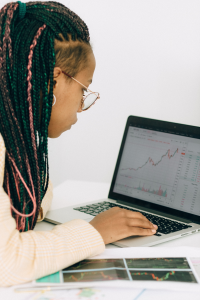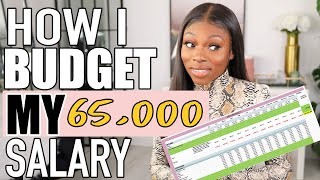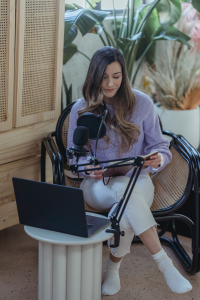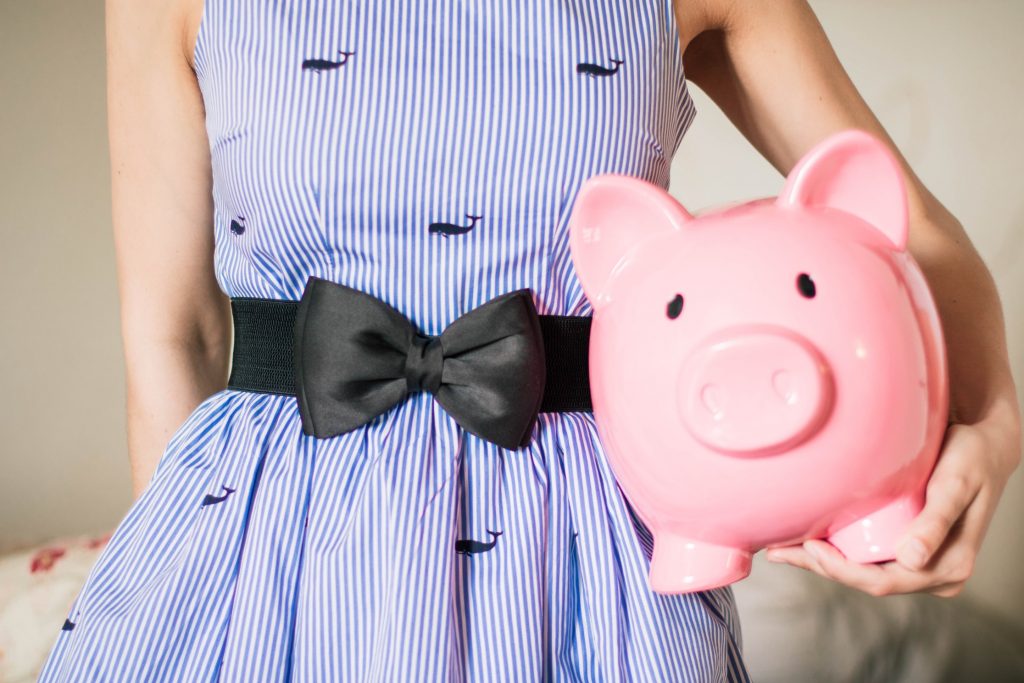
By Nadia Smith, LED project leader
If you’re like me, your parents would have encouraged you to save, save and save some more. I still remember the excitement I felt when seeing a £20 note slip out of my card on my 11th birthday (pretending I had missed it so I could read the heartfelt message in the card before I jumped with delight). Being a diligent child, I often ended up folding that note neatly and stuffing it into a piggy bank, only to be rediscovered a few years later when I had forgotten I had put it there. And as much as that discovery brought me some excitement once again, as I grew older, I started to think about all the things those £20 notes could have been doing instead of sitting in that piggy bank
When I reached 18, my mindset towards money had started to change. Similar to a lot of people in my generation, entrepreneurship was the new, exciting idea that everyone wanted a part of. So, whilst at university, I did what I could – learnt how to fix phone screens (highly in demand at universities, as you can imagine), and I’d plough any money I made from those weekends I sat in my room with tiny screwdrivers and bits of smart phones lying around, into making more adverts to print and put in the laundry rooms or getting my friends to advertise my business. It was exciting, and I was finally making my own money, albeit very small amounts.
What I didn’t realise at the time, was that this was a significant change in my approach towards investment. To say such a small act helped me in my adult life, would be somewhat an understatement.
Years later, I’m glad to say, I’ve upgraded that piggy bank.
Now my money works just as hard as I do, let me give you an insight on why investment in the right place is so important…
Why impact investing should be top of your post-lockdown “sort out my life” list
If you’re still in your 20s, 30s, or early 40s even, you’ve got valuable time on your side. This is important in terms of impact investing because of something called compounded returns. Putting small amounts of money into investments with a long period of time for return, is a great way to increase the amount of money you have without feeling like you’re penny pinching in the short term. It’ll also mean you don’t need to invest a large amount later in life, to get the same return.
The second reason, which is equally related to the fact that young investors have some time ahead of them, is the environmental impact of investments like the share offer that SE24 has just launched. Just before lockdown, we saw overwhelming passion for tackling climate change from people as young as Greta Thunberg, and as old as David Attenborough. As a result of the XR protests, the sunny skies and revival of wildlife we saw during lockdown, and local councils across the country announcing that we are in a state of “climate emergency”, we have seen stakeholders like government, big corp, and huge investment companies make significant structural changes towards getting their act together on climate change. Some of us have also made commendable changes as individuals, taking up a vegan diet, or packing our reusable bags instead of single-use plastic carrier bags. One thing we don’t tend to do so literally though, is put our money where our mouth is – and make our investments as sustainable as our lifestyle.
A June 2020 survey revealed that 75% of Gen Z-ers and millennials are planning to invest. There’s been a huge number of young and inexperienced investors enter the stock market over lockdown, and young people these days are really making the most of new apps to monitor their spending and help them create healthier financial habits. It seems that there could be a few reasons for this:
Tech has a role to play
It’s becoming much easier to invest, literally at the click of a button! or even without it (with apps that utilise automatic investments). It’s no surprise that innovative FinTechs like Monzo, Revolut and Staling bank have taken the finance industry by storm, really catering to the millennial market when it comes to making money matters easy and accessible.
The rise of Crypto
An exciting prospect, is to have a modern concept re-jig and revolutionise what has historically been a heavily institutionalised, bureaucratic process. With crypto currency gaining such momentum in the past few years as an investment, the idea that it challenges longstanding (and somewhat un-sustainable, unfair) capitalist financial systems, seems to be one that strongly appeals to millennials, and has raised questions about social investment more widely.
Passion & anger!
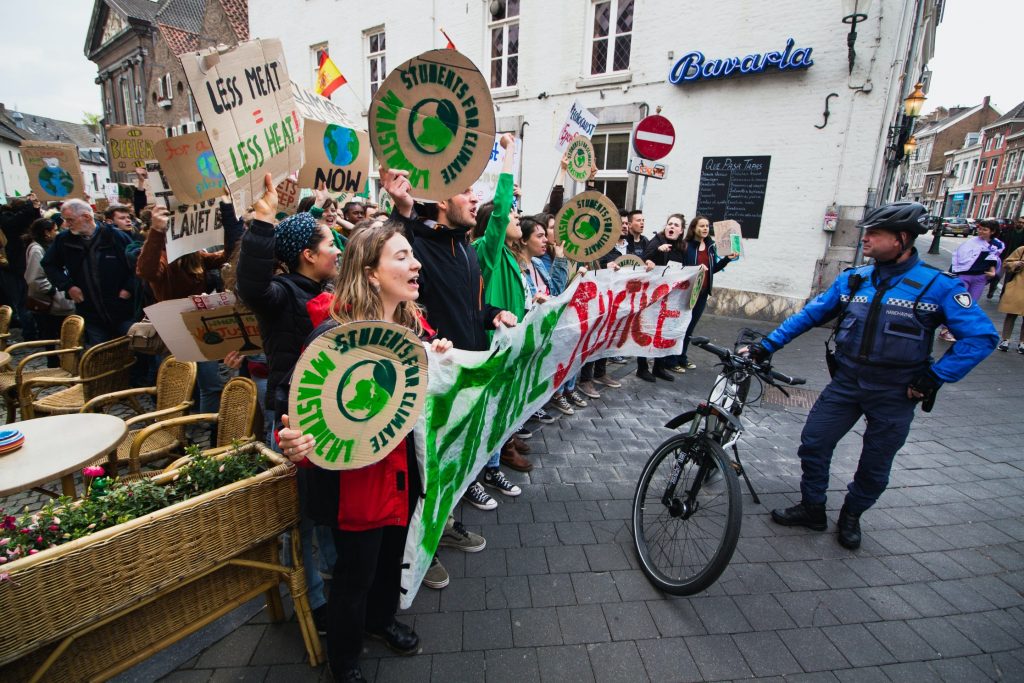
Related to the above point on crypto, there’s a sense of anger in many youths towards how our current financial system – and wider corporate system – works. With the rise of consumerism, we are starting to see a mindset shift, which can clearly be reflected in a number of industries – away form materialism. More people are pursuing “experiences” rather than items. There’s less of a focus on ownership (for example, the rise of ride hailing apps like Uber rather than the ultimate goal at 18 years old being buying a car), the growth of ethical consumerism and sustainable fashion, and much more. It seems youths today are thinking ahead and thinking about their impact on the world more widely. This has been reflected in their interests in ethical and impact investing too. The only problem is, there’s a lack of awareness on how to get started.
How can you make money moves?
In my opinion (and I’m by no means an expert) there are four types money moves you need to be making to set you up for the future. I’ve broken them down to keep it nice and simple:
Spending & Saving Habits
The very first thing you need to be thinking about, before you can start investing, is how you’re going to manage your income when it comes in. I personally get a lot of my budgeting knowledge from financial advisors (not the kinds that sit at desks in suits) from… Instagram! Check out @thebreaksocial ’s infographics on how you can split your salary as soon as it comes in, to budget for essential spending, non-essential spending, savings, investment and paying off any debt too. Sometimes, you have to trick your mind too – I find, if I split out my savings & investment money as soon as I get my salary in, I pretend to myself that I have less money to spend on non-essentials than I really do (and yes, I do end up most months, only spending what I can see in my account)!
Pensions & bonds
OK, now we can get started on investing, and yes – your pension is an investment! Did you know, you can check what type of investment plan your pension is currently in. You will usually have the option to opt for higher or lower risk/return plans, or ethical/sustainable investments, or indeed investments that align with your religious values such as a “sharia-compliant” pension plan. Pensions and bonds, tend to be considered relatively low risk, but very long term investments – so only put money into these that you don’t think you will need in 3-5 years’ time. If you have some spare cash, (at my age, luckily, I have very few outgoings as I live with parents and use public transport) it’s always a great idea to increase your pension contributions or put in a lump sum. Check out your pension provider’s website, they’ll probably have a calculator to help you work out exactly how much difference they would expect putting extra money in could make at the end of your pension.
Assets
There’s a huge buzz right now in the property market, and this is in part due to the government relaxing stamp duty rules, but also due to young people living in expensive areas like London feeling frustrated at the prospect of not being able to get onto the property ladder. There are some options though – investments in homes in the midlands and north of the country require a significantly smaller deposit, and we’re also seeing a big increase in social landlords, and crowdfunded property investment schemes.
Equity investments (stocks and shares)
We’ve all heard about the stock market, through movies like the Wolf of Wall Street, but it hasn’t really historically been given a glamorous picture. Post lockdown, we’re seeing a huge change with an influx of new investors entering the stock market, and they’re not the usual culprits. The FCA state that this newer group “tend to skew more towards being female, under 40 and from a BAME background”, which in my opinion, is a long overdue shakeup towards diversification that has been needed in investing in general. In recent times, the stock market has proven volatile, with most stocks crashing during lockdown, and crypto currencies constantly going up and down dependent on Elon Musk’s tweets, or Reddit users collaborating against big investors in the GameStop saga. I personally think the stock market is an interesting space to get into, with options to invest in ETFs (Exchange traded funds) which hold a diverse group of investments, or specific companies, but you really do need to do your research on this one. There’s also a separate avenue which people tend to forget about, which is shares in companies that are not floated on the stock market, and that’s where a lot of the community investments like the one SE24 have just launched, lie within the investment playground. This just means that you don’t need to use an investment platform, you have a relationship directly with the company/organisation and in most cases in community energy enterprises – when you invest you also become a member of the organisation with voting rights (and you’ll probably be more active and actually get involved in, and have a say in the AGMs and how the organisation is run).
I think community shares, especially community energy (because who doesn’t love solar panels and saving the planet), is a positive step in diversifying investments and really reassuring that my money is working hard and contributing to a good cause. SE24 Sustainable Energy was formed in 2014 by a group of local residents in Herne Hill, South London (who also spent a lot of time cycling together). They all shared a desire to take real action on climate change by developing locally owned, renewable energy assets sited on community buildings.

Their current share offer is fundraising for two projects at The Charter Schools in North Dulwich and Charles Dickens Primary School. We’ll be fitting the schools with new energy efficient LED lighting, and putting solar panels on one school. I’ve been managing the LED lighting project at the two sites, and its been really positive to see how eager both schools are to find ways to reduce their carbon emissions, whilst recognising that working with a community organisation to do this can offer both financial savings and social impact for the local area.
SE24 also have a team of really expert directors behind them, who are all working totally voluntarily to get these project together. From ex-PWC directors, to CEOs of organisations like Fairtrade International, individuals who have worked in government, or even advising government, they’re a really inspiring team of brains and heart. And we constantly see this across community energy enterprises around the UK, a quiet, humble team of individuals who are experts in their chosen professional field, using their spare time to make a difference in their local communities. In my opinion, they’re the real stars of the show in terms of tackling climate change – maybe one day they’ll have their own Forbes list, because they definitely pack an ethical punch.
If you’re interested to start investing, please do more research and find causes you are passionate about as passion takes you a long way. You can find out more about SE24’s share offer here – we’re looking to raise £240,000 with a 3% projected annual return (capital at risk). You’ve got until the 18th July 2021 to get stuck in, and the minimum investment is just £250 so it’s really accessible. In the meantime, you can also check out some of the below resources which I’ve found useful to learn more about investing, and access similar share offers.
Wishing you the best of luck on your investment journey, and remember – work hard, and make sure your money is busy doing good.
Here’s the reading (or listening) list:
SE24 Sustainable Energy’s share offer document
Stock Market Fundamentals Podcast (on Spotify and YouTube)
Yielders crowdfunded property investment
@TheBreakSocial money and budgeting advice for women (on Instagram)
@ThePennyPal budgeting and savings advice for millennials (on Instagram)
Simply Ethical socially ethical investing platform (also offer sharia compliant investments)
Ethex ethical investment platform
Kestrl money management and investment app (also offer sharia compliant investments)
Triodos UK green bank and crowdfunding ethical investment platform
Crypto Curry Club magazine/blog/newsletter
Energise Africa solar project bonds
Money Saving Expert’s Money Tips newsletter
Hargreaves Lansdown financial advisors – book a free consultation with them & sign up to their newsletter
Nadia Smith is Sustainable Futures Manager at South East London Community Energy (SELCE). She was CEE Young Champion 2019 with a wealth of experience from working with Community for Renewables CIC as a project coordinator, and the REA as a policy analyst where she engaged with industry and government to champion entrepreneurship and grow the renewable energy and clean tech sector. She runs SE24/SELCE’s LEDing The Way! projects, and in her spare time likes drawing and outdoor activities.


